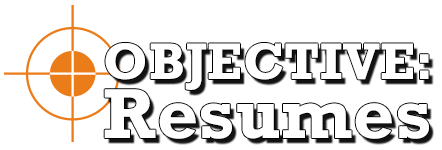
Your resume worked: you have followed our advice, based upon our thirty years of professional resume writing experience, or perhaps utilized our services directly. You’ve secured the interview. You have answered every question appropriately, balancing confidence with a revelation of your skills and genuine enthusiasm. The interview seemed to have so gone well that you are expecting to receive a formal offer of employment. During the closing dialogue, the hiring manager tossed out a seemingly offhand question that nonetheless felt like the slap of a boomerang.
“I don’t see interests listed on your resume,” she smiled at you across her impeccable desk, the smile never reaching her eyes. “Is there a reason why you didn’t list them?”
The truth and the right answers sprang readily to your lips: “I understood that interests are passé on a resume,” “I know you don’t have the time to read extraneous data,” and “I feel that my skills sets and solid experience are my true strengths as an employee.”  However, you have uttered none of these responses, for the manager’s eyes held an unspoken question: she wanted to gauge not only how perceptive you were to her query, she wanted the truth.  She wished to know what holds your interest during your downtime. Was this a trick question? Indeed it was. Instead of thinking carefully before you must answer a question of this nature, be prepared in advance.
If the firm is engaged in, for example, the production of clean, renewable energy, it would be wise for you to have taken a real interest in the environment, ideally, through perusal of industry journals and better yet, active membership in a well-respected environmental organization.  This, of course, would provide you with the ideal response. But the job-hunting world is seldom ideal.
If you participate actively in any type of organization in which your name appears on a formal member roster, the truth is advisable. However, weigh the truth carefully before divulging it. If your weekend passion involves racing cars or plummeting out of airplanes (attached to parachutes, of course), these truths are best left unrevealed. Most employers appreciate a worker who will take calculated risks, but not risk at this level. No one wants to hire a person who may, as a result of his/her personal interests, require a time- and cost-consumptive stay of disability.
If your passion is music, be careful that the genre is not something that Middle America finds offensive, such as rap or acid rock. If you love to read, think twice about divulging the literature that truly draws you.  Years ago, for example, I was a regular reader of the Irish newspapers published in New York City. I’d read them mainly for the arts section, the music, poetry, and literature. One of those papers, however, was a known, vocal supporter of the IRA (Irish Revolutionary Army); I kept this to myself when asked this very question by two tag-team interviewers who’d decided to spring this question on me as I was leaving their conference room. Instead, I mentioned several Irish authors and musicians whose work had captured my interest, and why.
The tiebreaker in an interview need not be a question. It may be something unexpected, as in an unexpected introduction to other members of the prospective employer’s staff and management. Most of us who have been in business for any length of time understand firsthand the interview process. We know that we may be asked to meet, perhaps briefly, with a department head or another individual of managerial authority. Expecting this, we arrive at the interview armed with multiple copies of our resume so that we do not have to ask the interviewer to photocopy our documents for us (don’t we?).
We may not expect to be asked to perform a demonstration of the skills that we have touted on our resumes. If you assume that this scenario will never crop up during your job search, disavow yourself of that fantasy immediately. One of our clients purported to be fluent in Spanish, a language that is often stretched, on one’s resume, to mean Portuguese or Cuban or anything less than true fluency in the Spanish tongue.  As a rather productive interview came to a close, the manager escorted our client into one of the work areas populated by predominantly Spanish speaking workers; she was asked to engage one of them in conversation!  Thankfully, our client’s linguistic skills were sound and although she was a bit rattled by this turn of events, landed the job.
Another client who had listed a very new and rather technical software package on his resume was asked, during the interview, to create something using that application. He did, but not with proficiency. Another candidate skilled in that particular program nailed the job offer.
If you are prepared to support the claims on your resume with the truth or a selective version of the truth, as well as an actual demonstration of your abilities, you will show yourself to be a person of skill, worth, and integrity; in other words, the ideal job candidate.Â
Similar Articles interviewing
- Thanking the Prospective Employer - March 5th, 2010
- Interviewee, Beware - February 5th, 2010
- The Consultant's Interview - December 30th, 2009
- Put Your Best Voice Forward: 10 Tips for Telephone Interviews - November 18th, 2009
- Interview Monkey Wrenches - November 6th, 2009
